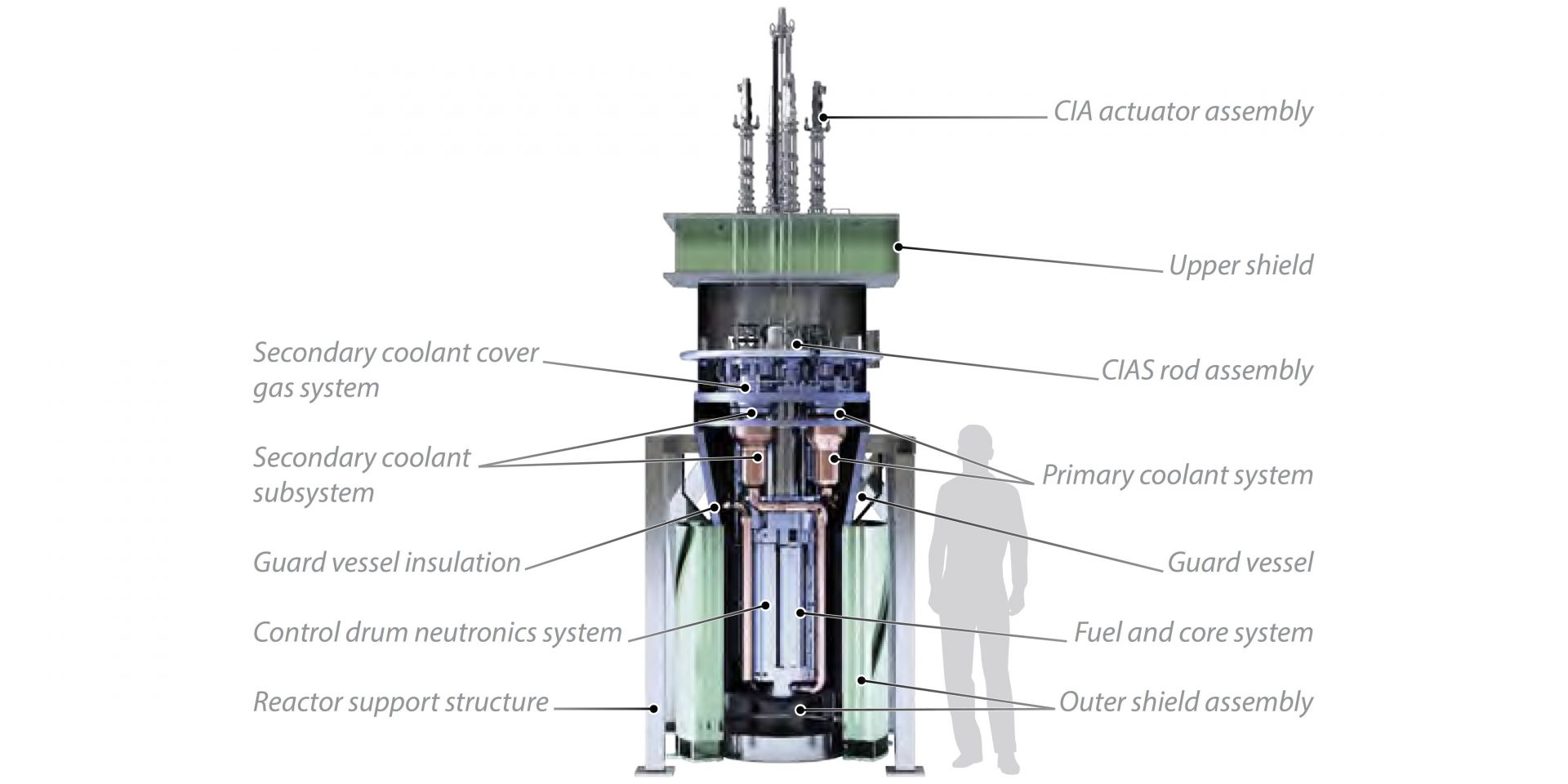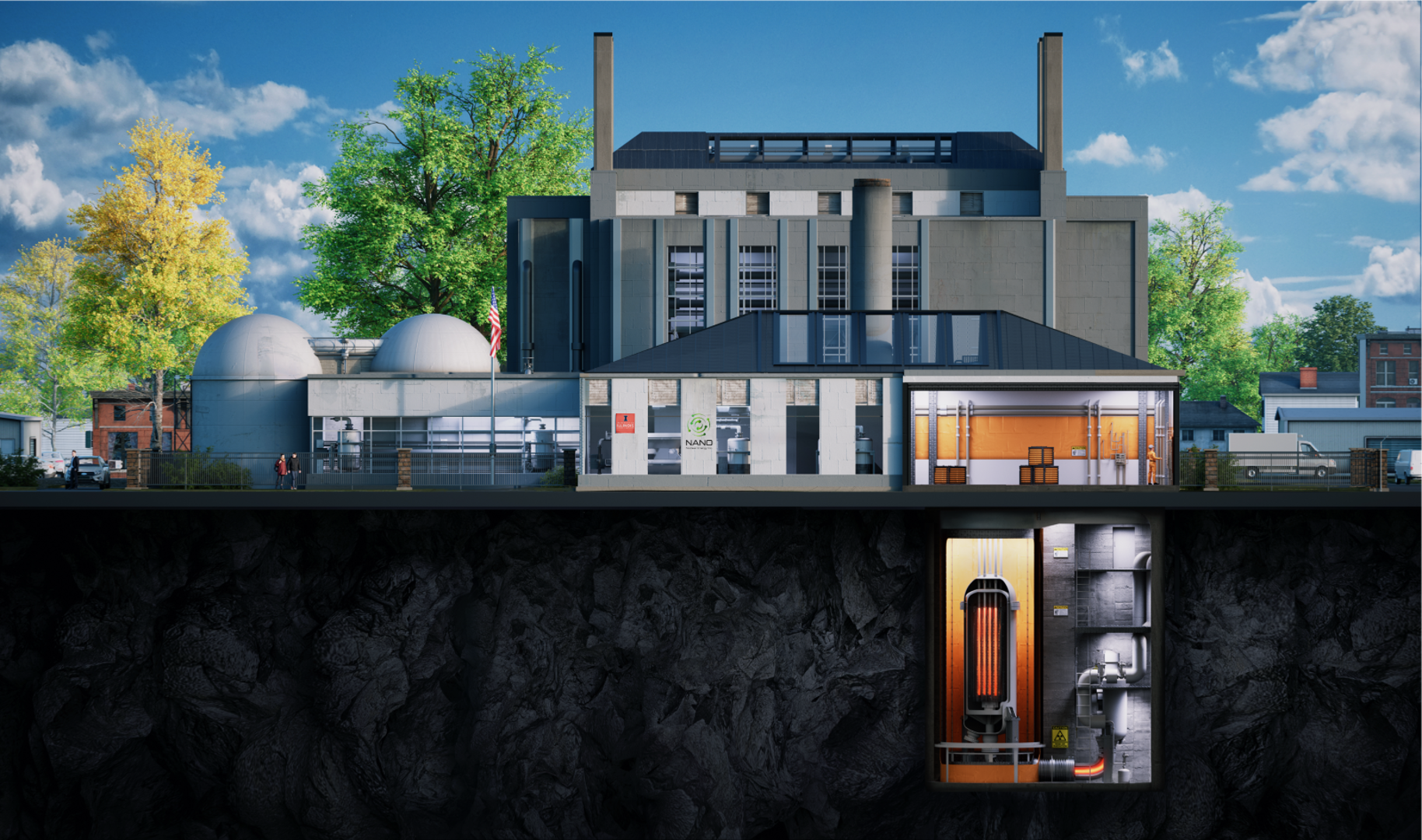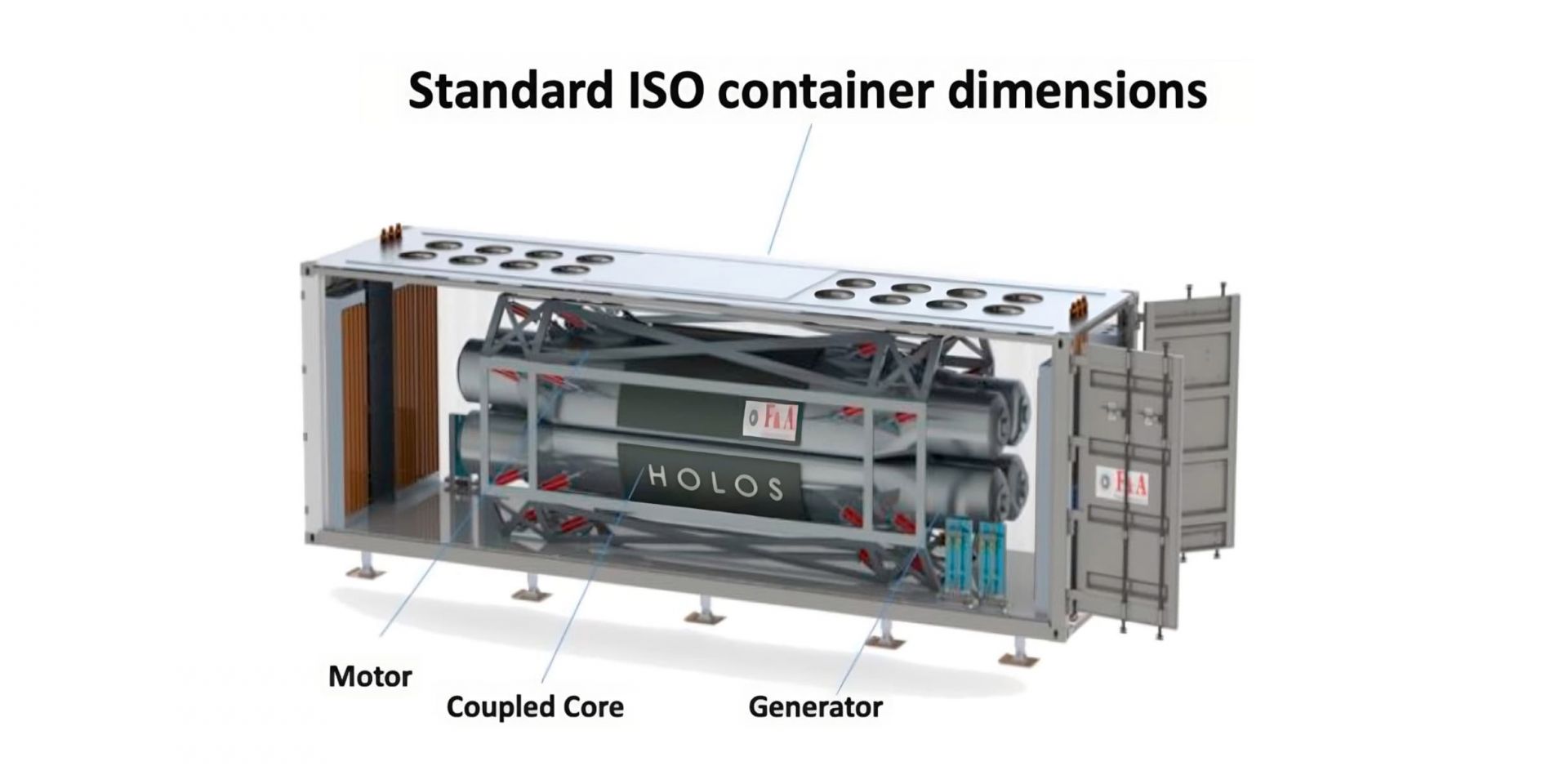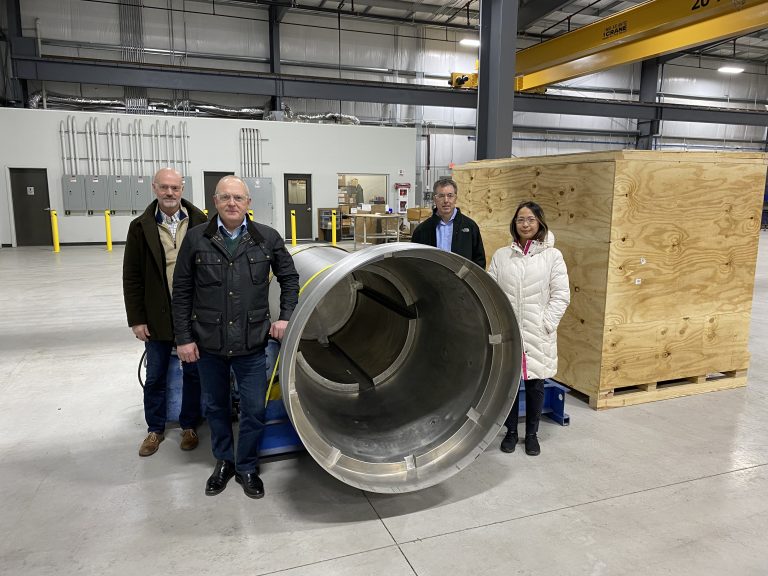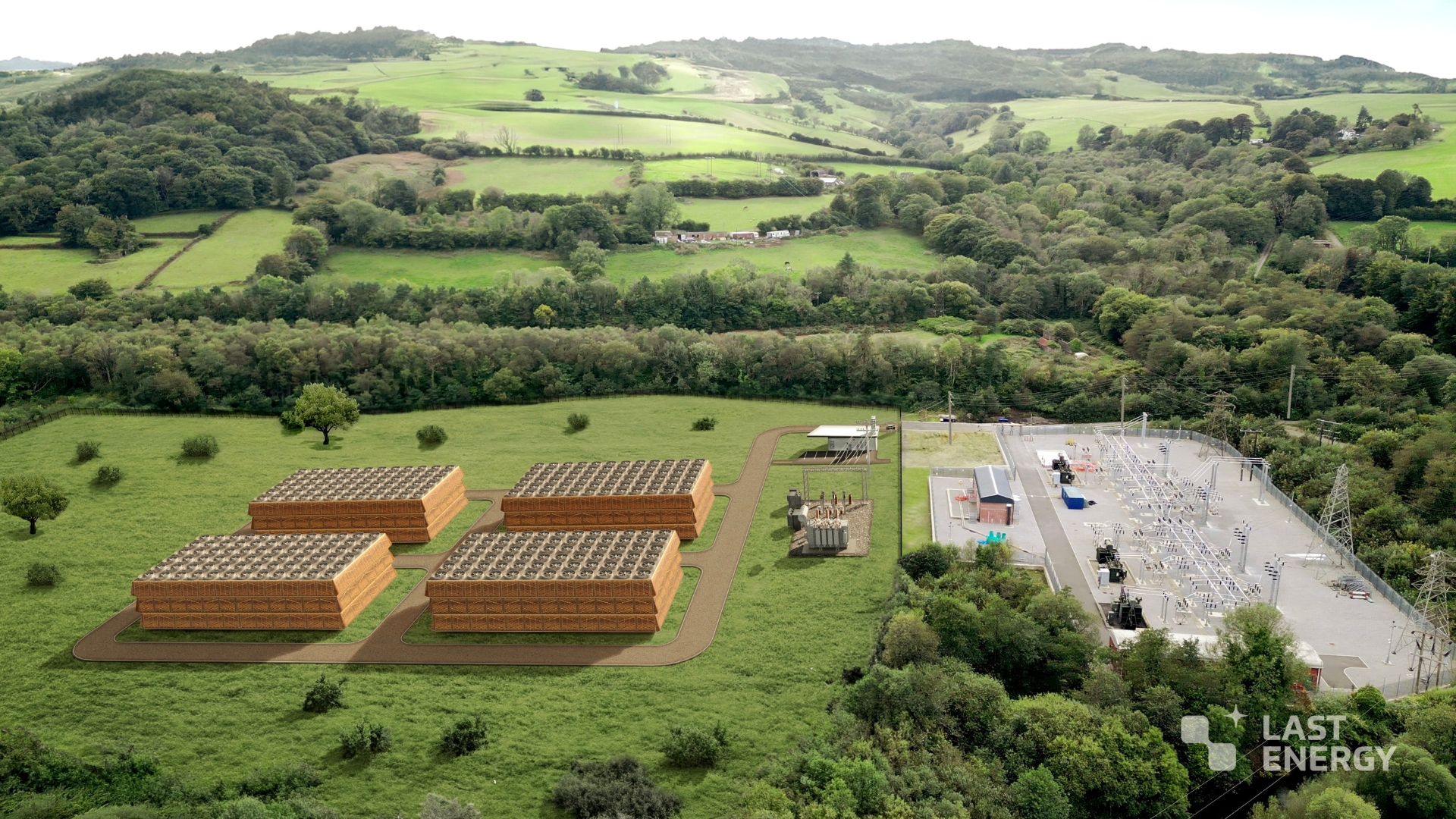Cutaway view of MARVEL and its subsystems. (Image:INL)
Idaho National Laboratory has selected five teams for its Microreactor Application Research Validation and Evaluation (MARVEL) Project to develop a sodium-potassium–cooled microreactor designed to test microreactor applications, create regulatory processes, and explore electrical and nonelectrical uses.
U.S. Army Soldiers from 1st Battalion, 1st Air Defense Artillery Regiment, 38th Air Defense Artillery Brigade place a Patriot radar system under night conditions, July 19, 2025. (Photo: U.S. Army)
As part of the Janus Program, announced in October, the Department of the Army is seeking potential commercial vendors to build microreactor power plants at nine military installations that are under consideration.
A rendering of the proposed Kronos MRR at the University of Illinois Urbana-Champaign. Image: NANO Nuclear Energy Inc.
New York City–based advanced nuclear technology developer Nano Nuclear and the Office of Illinois Gov. J.B. Pritzker announced on Tuesday that Nano will receive $6.8 million in state funding to establish its new manufacturing and research and development facility in Illinois.
This Oak Brook, Ill., location will be a demonstration and office facility for Nano Nuclear’s Kronos MMR project. (Photo: Nano Nuclear)
Scale model of the Pele transportable microreactor. (Image: BWXT)
Fabrication of the reactor core for the 1.5-MW Project Pele demonstration microreactor has begun, according to BWX Technologies. Pele is being developed at the BWXT Innovation Campus in Lynchburg, Va., for the U.S. Department of Defense’s Strategic Capabilities Office.
The compact, transportable Holos-Quad microreactor, developed by HolosGen, is shown housed within a standard 40-foot ISO container. (Image: HolosGen)
The University of Michigan’s Department of Nuclear Engineering and Radiological Sciences (NERS) has published a summary of a study on nuclear microreactors and machine learning (ML) that was conducted by researchers from NERS and Idaho National Laboratory. The full paper, “Nuclear Microreactor Transient and Load-Following Control with Deep Reinforcement Learning,” was featured in the July issue of Energy Conversion and Management: X.
From left, INL’s Mark Nefzger, Raymond Clark, and John Jackson and DOE-NE’s and Diana Li pose with a MARVEL component.. (Photo: DOE-NE)
A team from Idaho National Laboratory and the Department of Energy’s Office of Nuclear Energy recently visited Carolina Fabricators Inc. (CFI) in West Columbia, S.C., to launch the fabrication process for the primary coolant system of the MARVEL microreactor. Battelle Energy Alliance, which manages INL, awarded the CFI contract in January.
Concept art of the Llynfi Energy Project in South Wales. (Source: Last Energy)
American start-up Last Energy has received a letter of interest from the Export-Import Bank of the United States (EXIM), confirming the bank’s willingness to move forward with due diligence for $103.7 million in financing for the company’s project in southern Wales.
Jeff Waksman (left), Project Pele program manager for DOD-SCO, and John Wagner, INL director, at the planned testing site. (Photo: DOD)
The Department of Defense announced September 24 that it has broken ground on the site at Idaho National Laboratory’s Critical Infrastructure Test Range Complex (CITRC) where Project Pele, a transportable 1–5 MWe microreactor, will be tested. The DOD’s Strategic Capabilities Office (SCO) is in charge, on a mission to prove that a mobile microreactor can help meet the DOD’s increasing demand for resilient carbon-free energy for mission-critical operations in remote and austere environments.

-3 2x1.jpg)
